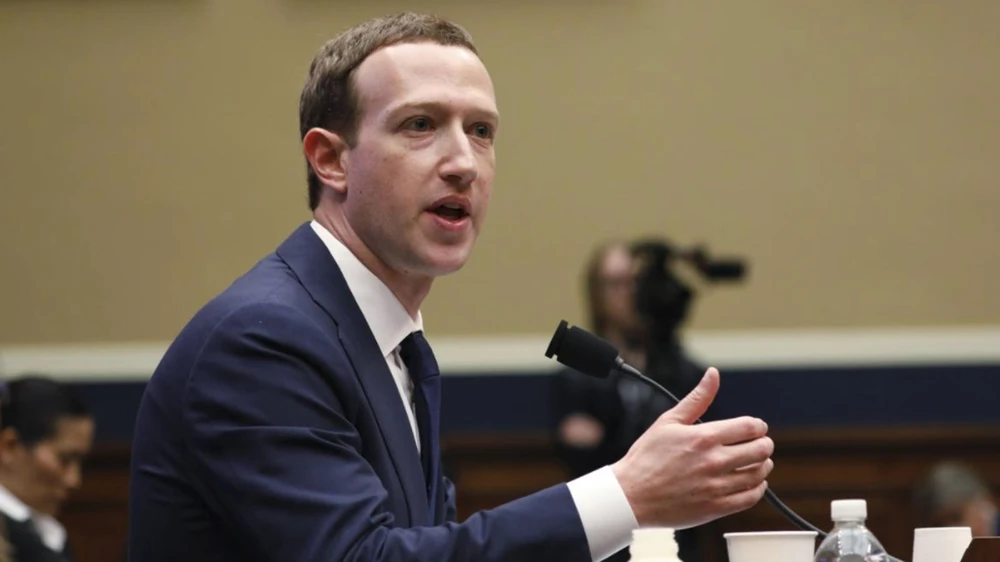
The digital world has been rapidly evolving, and Silicon Valley’s biggest players have always been ahead of the curve. But what if those giants weren’t just running our social media and digital spaces—they were running our banks too?
This could soon be a reality with the introduction of the GENIUS Act, a sweeping cryptocurrency law that would grant tech firms like Meta, Twitter, and Apple the power to issue their own private currencies. The implications of such a law are staggering, as it could set the stage for a future where billionaires control not just tech, but the very money we use to buy goods and services.
Elon Musk, Mark Zuckerberg, and their Big Tech counterparts have long sought to expand their reach beyond the screens of our devices. Their next target? Our wallets. Currently, regulations prevent tech companies from becoming banks. But if the GENIUS Act is passed, that could all change.
The GENIUS Act, which stands for Guiding and Establishing National Innovation for US Stablecoins, is a bill designed to regulate stablecoins—cryptocurrencies that are pegged to the value of the U.S. dollar.
The bill has been crafted with the intention of simplifying the regulatory process for stablecoins, which would, in theory, make it easier for businesses to adopt them. However, the potential consequences go far beyond the original scope of the legislation.
What could be the most concerning for everyday citizens is the power this legislation would give to companies like Meta, Twitter, and Apple. Under the GENIUS Act, any enterprise, even non-banking ones, could be granted a license to deal with stablecoins.

This would give tech companies the ability to issue their own digital currencies—currencies that we, as consumers, would be required to use for transactions. Imagine being forced to use a cryptocurrency owned by Meta or Twitter to pay for goods online, with these tech giants charging massive transaction fees at every turn.
This isn’t just a hypothetical scenario. In fact, Zuckerberg’s Meta has been laying the groundwork for such a move. The company’s previous attempt at launching a cryptocurrency, Libra, was met with fierce resistance from global regulators.
After the backlash, the project was put on ice. However, with the GENIUS Act now on the table, Zuckerberg’s ambitions to create a digital currency might not be so easily thwarted this time.
Mark Zuckerberg and his colleagues in Silicon Valley have long had ambitions beyond just dominating social media. They’ve been quietly building their digital empires, often in competition with traditional industries like banking and finance. If the GENIUS Act passes, these companies could not only control our digital lives but also our financial ones.
What would a future look like where tech giants control their own currencies? With billions of users across their platforms, companies like Meta and Twitter could effectively create monopolies on the digital money market.
They could charge whatever fees they wanted, making it difficult for smaller businesses and consumers to navigate the system. Moreover, the digital currencies could be used as a way for these companies to gather even more data on their users, tracking their spending habits and personal information.
While the bill aims to create some form of regulation for these cryptocurrencies, it has serious loopholes. For one, the legislation includes provisions that would exempt companies like X (formerly Twitter) from even the most basic regulatory oversight.

This would give Musk, already one of the most powerful men in tech, an unprecedented advantage in creating his own private currency. Not only would Musk be free to build a private financial system on X, but he could also make it so that every transaction made on his platform could only use his currency.
The financial implications of this bill are far-reaching. Currently, the Consumer Financial Protection Bureau (CFPB) monitors companies like Meta, Twitter, and Apple for issues related to consumer protection in payments and banking.
However, the GENIUS Act includes language that strips away the CFPB’s authority to regulate these tech giants’ stablecoins. This means that these companies would be free to operate without the usual consumer protections, leading to potential risks like fraud, abuse, and even financial collapse.
In addition to stripping away regulatory oversight, the GENIUS Act could also pave the way for tech companies to take even more control over the financial data of their users. Apple Pay, for example, already has hundreds of millions of users worldwide.
Under the new law, Apple could launch its own stablecoin payment system, granting the company even more access to sensitive user data.
Meta has long been a leader in the tech space, and Zuckerberg has been particularly interested in integrating cryptocurrency into the company’s services. The previous attempt at launching Libra was a bold move, but the backlash from regulators, including the U.S. Federal Reserve, caused the project to stall.
Now, with the GENIUS Act, Zuckerberg could finally see his vision come to fruition. Meta could launch a stablecoin that integrates with its vast user base, giving Zuckerberg more control over how people spend money online.

However, there are serious concerns about the consequences of such a move. Financial experts warn that allowing tech companies to issue their own currencies could destabilize the financial system. By blurring the lines between technology and finance, we risk creating a situation where tech companies are too powerful and too unregulated to manage effectively.
The prospect of tech companies issuing their own currencies raises serious questions about the future of banking. For years, tech giants have been lobbying lawmakers to grant them the power to control payment systems.
The GENIUS Act, if passed, would give these companies the authority to issue stablecoins, essentially allowing them to act as their own banks. This could lead to massive shifts in how we interact with money and raise concerns about the concentration of financial power in the hands of a few wealthy tech moguls.
In conclusion, the GENIUS Act could be a game-changer for the financial industry, but not necessarily in a good way. If passed, it could allow Big Tech to take control of the global financial system, offering tech giants like Elon Musk and Mark Zuckerberg the ability to issue their own currencies and charge exorbitant transaction fees.
This new world of private digital currencies could create monopolies and strip away consumer protections, leading to a more volatile and less regulated financial landscape. As the bill moves forward, it is crucial that lawmakers carefully consider the potential consequences of giving Silicon Valley so much control over our money. The future of money may soon rest in the hands of Big Tech, and that is a frightening prospect for many.



